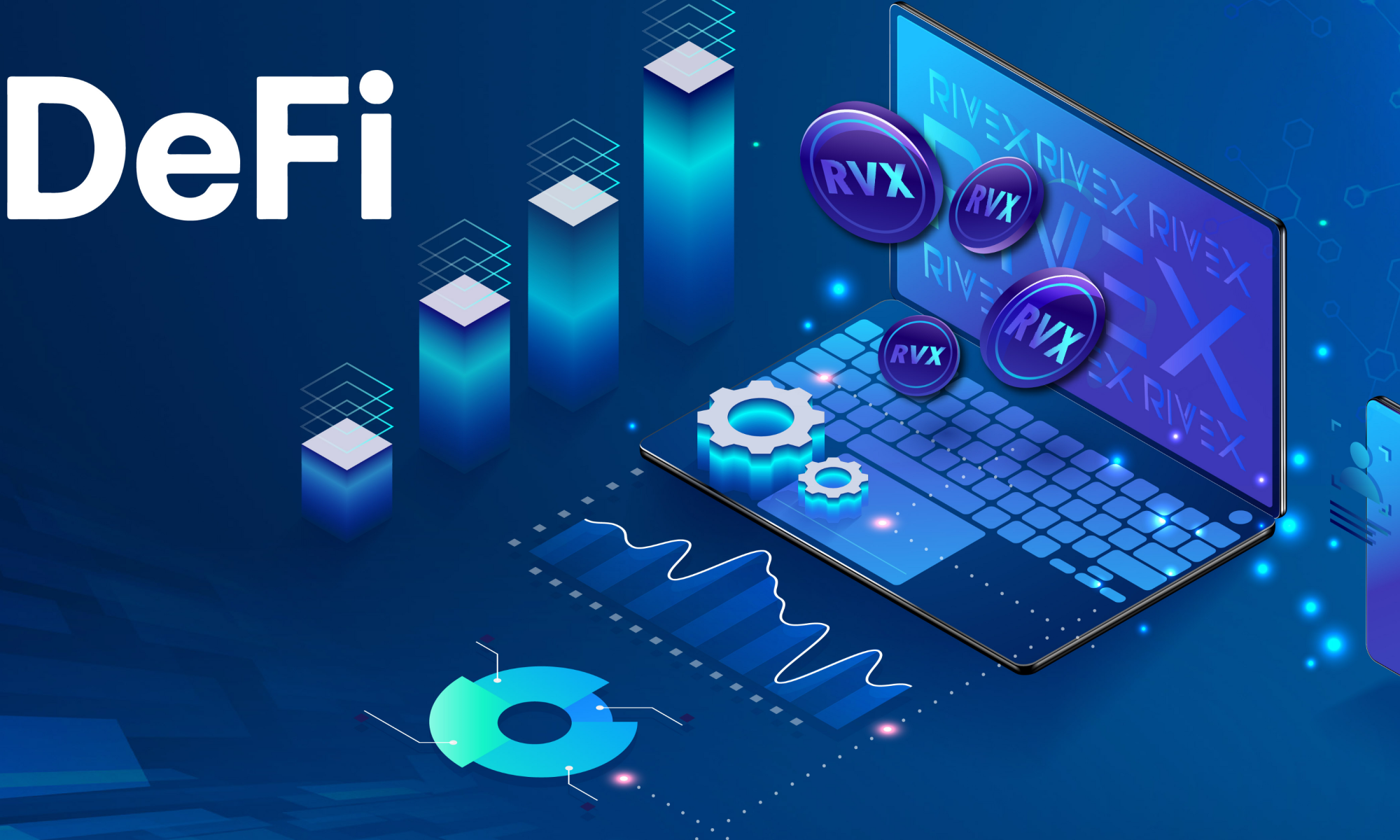Financial sector has always resented some of the cases of blockchain technology. From online payment to trading and cryptocurrency we have seen blockchain has come up with several challenges to challenge traditional challenges from day one.
The term Decentralised finance (DEFI) is used to describe various blockchain powered applications aimed at creating peer to peer alternatives to traditional financial services services and institutions.
According to Defi Pulse the go- to data aggregator for decentralised finance, the total value locked in DeFi protocols presently stands at just under$11.5 billion, over from lower than$ 1 billion a time ago. While this clearly pales in comparison to traditional fiscal requests, the crucial takeaway then’s that DeFi has grown further than tenfold over the past 12 months. This is a clear sign of decentralised finance’s surging fashionability. What’s most encouraging is that rapid-fire growth seems to reflect the strength of DeFi’s value proposition. Let’s examine what makes decentralised finance such an investment draw.
The benefits of Decentralised Finance
Following are the benefits of decentralised finance-
Permissionless
The term Defi itself suggests that it does not need any authority to take permission for and it is a decentralised form. The decentralised approach can help in democratising banking and finance by ensuing easy access to financial service for everyone.
Utmost DeFi apps run on Ethereum, the alternate- largest blockchain protocol, after Bitcoin. As a permissionless( public) blockchain, Ethereum is largely decentralised and readily accessible to anyone interested in structure or using a DeFi app. In addition, the permissionless nature of the blockchain, as well as the interoperability it enables, opens the door for all kinds of third- third party integrations.
It’s important to note that these features aren’t exclusive to Ethereum. Still, being the leading network for smart contract development has deposited Ethereum as the favoured platform for erecting not only DeFi operations but also other types of decentralised apps.
Transparency
With decentralisation also comes great transparency as everything is available and clear to its users. The ledger creating the activity of the users is available to everyone, the network data is publicly available. Therefore this is more transparent blockchain technology.
Immutability
Through the clever use of cryptography and agreement algorithms like evidence- of- work, blockchain technology achieves true invariability. This guarantees that manipulating records stored on a blockchain network is virtually insolvable. In combination with the features we formerly bandied, this creates a position of security that’s delicate, if indeed possible, to achieve with traditional means.
DeFi apps bring the essential advantages of blockchain to the fiscal sector, while also seeking to produce convenient interfaces to ensure a smooth stoner experience. In addition, employing smart contracts similar to dApps give redundant protection against bad actors and fraudulent deals.
How can defi help the financial services sector
From what we ’ve seen so far, DeFi clearly has the implicit advantage of traditional finance. But as with any transformative technology, DeFi’s eventuality isn’t limited to just perfecting on the current status quo. Rather, its true strength lies in its capability to disrupt the space by enabling new types of fiscal products and services. Indeed at this early stage, the technology is showing great pledge in that regard. It’s formerly changing the way people manage their means, adopt and advance plutocrats, and trade online. Then are just some of DeFi’s most prominent use cases
Lending and adopting
DeFi has enabled the development of peer- to- peer lending and borrowing results that bring significant benefits to the end- stoner. These services come with cryptographic verification mechanisms and smart contract integration that exclude interposers similar as banks that generally corroborate and process lending and borrowing deals. This makes the process much cheaper and briskly, while still making sure that the counterparties involved in a sale are defended. Other benefits include instant agreement of deals and lesser availability.
Lending and adopting dApps are among the most popular DeFi operations. One platform that has come particularly popular in this order is emulsion. Lenders on the platform can supply crypto means to a number of advancing pools that are available for other people to adopt from. For these lenders are entitled to a share of the interest borrowers vengeance to the pool. The interest rate a lender earns is grounded on their donation to the pool, as well as the liquidity of the crypto means.
Savings
The growing fashionability of DeFi advancing platforms has opened up new ways for people to manage their savings. As mentioned over, by locking their crypto means into lending protocols similar to emulsion, druggies start earning interest on those means. This has led to the emergence of DeFi saving apps that can plug into different lending protocols to maximize their druggies capability to earn interest. The term ‘ yield husbandry ’ has been introduced to describe the decreasingly popular practice of druggies moving their idle crypto means around in different lending protocols to get advanced returns.
Tokenization
The Ethereum smash from many times ago led to the emergence of one of blockchain’s most important trends – tokenization. The protocol’s robust smart contract capabilities enabled the allocation of crypto commemoratives – digital means that live on a blockchain and can have colorful parcels and uses. These range from mileage commemoratives that are native to a specific dApp, security commemoratives that can be likened to digital shares, real estate commemoratives enabling fractional power over physical parcels, and more.
Commemoratives can also give exposure to other means – physical and digital – similar as oil painting, gold, edict currencies, and cryptocurrencies. These so- called crypto synthetic means are collateralized by commemoratives locked into Ethereum- grounded smart contracts. One of the most popular synthetic asset platforms, Synthetix, presently has nearly$ 600 million locked in smart contracts.
Stablecoins
Nearly related to crypto synthetic means, stablecoins are crypto commemoratives pegged to a stable asset or handbasket of means. In utmost cases, stablecoins are pegged to edict currencies like the US bone , but there can also be commodity- pegged and cryptocurrency- pegged commemoratives. Stablecoins aim to reduce the price volatility of cryptocurrencies and strengthen the case for using blockchains as payment results.
We can identify three types of stablecoins grounded on the system used to maintain their value. Collateralized stablecoins bear the coin issuer to hold the means against which their coin is pegged( edict currency, gold, tableware,etc.). Other coins are pegged to cryptocurrencies and their value is maintained by over-collateralization and stability mechanisms. Eventually, there are also non-collateralized commemoratives whose prices are kept at fixed situations algorithmically.
Stablecoins are in numerous ways what energises the DeFi machine. They ’re extensively used across the space to enable remittance, lending and borrowing, and other DeFi services.
Commerce
DeFi is also starting to impact the way we change goods and services online. An illustration of this is the recent emergence of decentralised exchanges( DEXes), which grease peer- to- peer trading of digital means. Uniswap is one of the major players in this order.
The conception can be fluently expanded to include traditional fiscal instruments and indeed physical goods, as well as services. One of Winklix’s guests, Defox, is exercising smart contracts and other blockchain features to produce a new way for people to buy, vend, rent, and trade luxury goods. Learn further about how Winklix has been helping Idoneus resuscitate the luxury asset request.
Conclusion
Given DeFi’s astral growth in 2022, it’s hard not to feel auspicious about the future of space. The new time will probably bring new challenges, but with interest in DeFi being on the rise, fresh openings will also arise.
At Winklix , we’re agitated about DeFi’s future and we ’re eager to contribute to the sector’s success. Do you have an idea for the coming groundbreaking DeFi app? Let’s talk about how we may be suitable to help you make it at Winklix .




